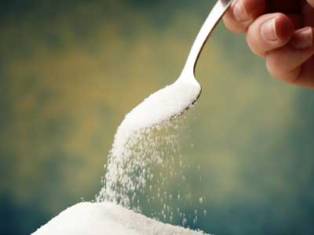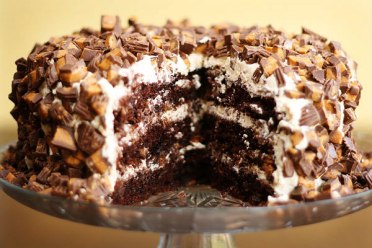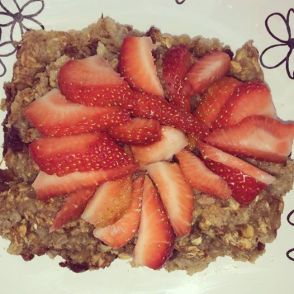As a child, I was terrified of Roald Dahl’s formidable creation, Miss Trunchball. The thought of being locked in her ‘chokey’ haunted me and I wouldn’t wear my hair in two plaits for months after reading about Amanda Thripp’s unfortunate experience. The only punishment which never seemed too onerous to me was Bruce Bogtrotter’s chocolate cake. Yes, the dessert was huge, and I agree, the chef didn’t seem too savoury, but a whole chocolate cake, all to myself, complete with chocolate icing? To me, that seemed like a glorious treat, instead of the humiliating task it was intended to be.
Put simply, I love desserts. Anything sweet, sugary and potentially a little bit naughty and I will devour it. I’m almost salivating at the thought. I thought I was aware of the problems that come with having a sweet tooth- cavities and an expanding waistband come to mind- but much to my despair, recent reports have revealed that sugar, my beloved Achilles’ heel, is even worse for us that previously believed, as, according to scientists, sugar is more addictive than cocaine.
French researchers have found that in animal trials, rats chose sugar over the class A drug, even when they were addicted to the latter. They noted that the intense stimulation of our sweet receptors, thanks to a sugar-rich diet, generates a reward signal in the brain with the potential to override self-control mechanism, thus leading to addiction. In layman’s terms, thanks to the multitude of processed foods and sugary drinks we consume, our bodies have become hooked on sugar. Indeed, the No Sugar Movement are so worried about the effects of the white stuff that they name sugar as the ‘greatest risk to human health bar none’.
So why is sugar so bad for us? Firstly, instead of filling us up as food should, foods with high levels of sugar trick our brains into thinking we want more, so we overeat. And while an extra slice of cake isn’t a disaster, surplus sugar doesn’t convert into energy in the way nutrients should. Instead, leading scientist Robert Lustig explains that our bodies ‘turn excess fructose into liver fat.That starts a cascade of insulin resistance (insulin promotes sugar uptake from blood) which leads to chronic metabolic disease, including diabetes and heart disease.”
So we have score one for diseases. What else does that pesky sugar cause? Well, obesity for one. Defra statistics show that, despite consuming on average 28 per cent fewer calories now than in 1964, obesity rates continue to rise. This may in part be due to the extreme quantities of sugar we are consuming- around 238 teaspoonful’s a week. We would never have guzzled that much sugar in the 60s, mainly due to our very modern love of anything marked ‘low fat’. According to insiders, low fat foods greatly rely on vast quantities of sugar to stop it from being tasteless. This means our calorie intake may be lower than 50 years ago but our fructoselevels are skyrocketing, and as a result, so are our waistbands.
We all know the feeling; you munch on a chocolate bar and your energy soars, you feel can do anything and everything, only to feel a sudden, lethargic dip moments later. That mood roller-coaster is one of the reasons Gwyneth Paltrow, in a blog entry on her website Goop, gives for quitting sugar: ‘Sugar gives you an initial high, then you crash, then you crave more, so you consume more sugar. It’s this series of highs and lows that provoke unnecessary stress on your adrenals. You get anxious, moody (sugar is a mood-altering drug) and eventually you feel exhausted.’
But what can we, a sugar addicted society, do about it? Most leading scientist advocate cutting sugar almost entirely from our diets. But I love the taste of sweet things, indeed, most of us do. Ironically, we’re biologically programmed to like sweets—our tongues and brains know that no food on the planet is both sweet and poisonous. It was a test for our hunting-and-gathering ancestors: If a food is sweet, it won’t kill you. Except now, it may do.
Instead of accepting defeat and tolerating a pudding free life, I have been experimenting with healthy desserts to replace our normal sugary treats. My latest investigation has been a ‘Chocolate Covered Katie’ recipe, a wonderful blog dedicated to the healthy dessert cause. This particular fancy is cookie dough baked oatmeal. As a recent convert to the wonders of gluten free oats, this particular recipe is genuinely as good, if not better, than most overly sugary delicacies. Sure, a few foodie switches are made: almond milk instead of regular, oats rather than flour and a mashed banana in place of added sugar, but the outcome is unexpectedly incredibly. A wonderfully gooey, sticky flapjack -type creation stood before me. It was moreish, delectable and I wanted more. Forget sugar, is this my new addiction?


